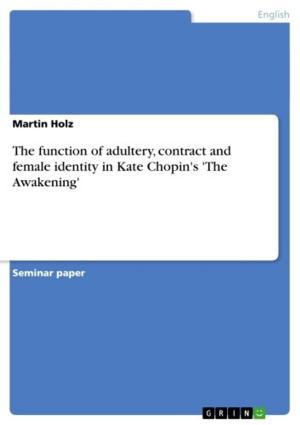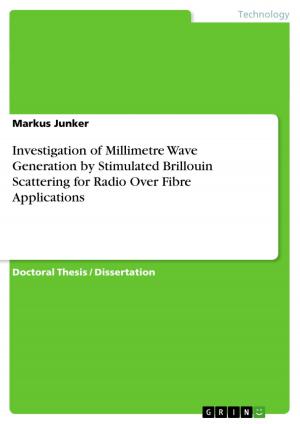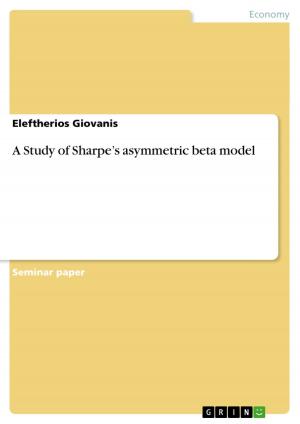'Bare passives' and 'relative clauses' in be-passive form as modifiers
Nonfiction, Entertainment, Drama, Anthologies| Author: | Annika Onken | ISBN: | 9783638892391 |
| Publisher: | GRIN Publishing | Publication: | January 14, 2008 |
| Imprint: | GRIN Publishing | Language: | English |
| Author: | Annika Onken |
| ISBN: | 9783638892391 |
| Publisher: | GRIN Publishing |
| Publication: | January 14, 2008 |
| Imprint: | GRIN Publishing |
| Language: | English |
Seminar paper from the year 2007 in the subject English Language and Literature Studies - Linguistics, grade: 1,3, University of Münster, 9 entries in the bibliography, language: English, abstract: 1Introduction In order to learn more about the English language and how it is actually used by the native speaker community I am going to investigate the occurrence of bare passives as modifiers and of relative clauses in be-passive form which can be compared to the former in its function as modifier. With help of the queries I will find out how many of these constructions exist in The Penn Treebank and then take a closer look at the beginning of sentences. Which of these two grammatical phenomenon is more frequent at the beginnings of sentences and why? Firstly in this term paper, I will introduce the grammatical phenomenon of the passive voice with its variants 'be-passive', 'get-passive' and 'bare passive' by contrasting it to the active voice. Furthermore I will explain the development of the different queries needed for the research whose findings will be discussed subsequent to that.
Seminar paper from the year 2007 in the subject English Language and Literature Studies - Linguistics, grade: 1,3, University of Münster, 9 entries in the bibliography, language: English, abstract: 1Introduction In order to learn more about the English language and how it is actually used by the native speaker community I am going to investigate the occurrence of bare passives as modifiers and of relative clauses in be-passive form which can be compared to the former in its function as modifier. With help of the queries I will find out how many of these constructions exist in The Penn Treebank and then take a closer look at the beginning of sentences. Which of these two grammatical phenomenon is more frequent at the beginnings of sentences and why? Firstly in this term paper, I will introduce the grammatical phenomenon of the passive voice with its variants 'be-passive', 'get-passive' and 'bare passive' by contrasting it to the active voice. Furthermore I will explain the development of the different queries needed for the research whose findings will be discussed subsequent to that.















